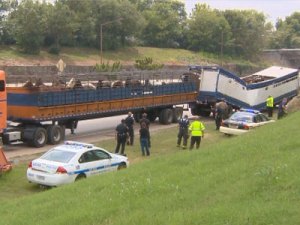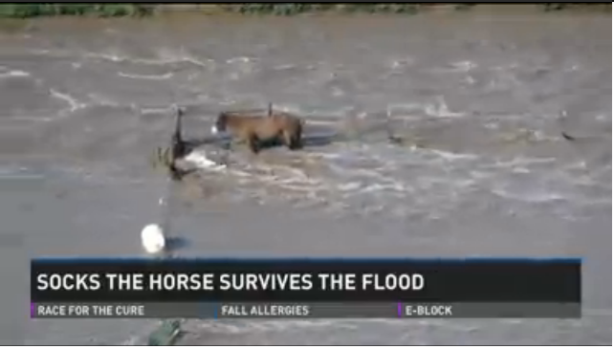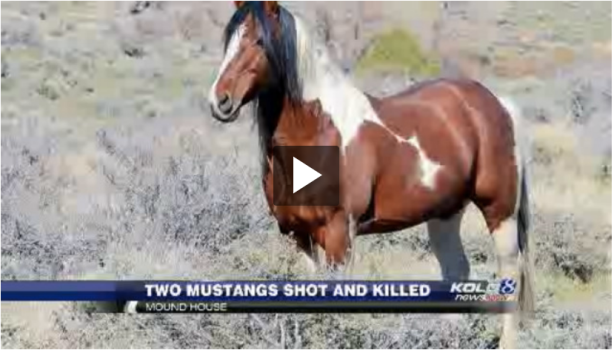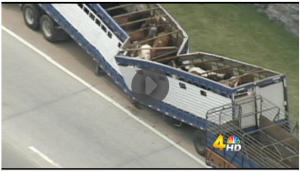Links
▼
Saturday, September 28, 2013
Monday, September 23, 2013
Save Our Last Surviving Wild Horses and Burros: Call DOI’s Sally Jewell Sept. 25th
Straight from the Horse's Heart
Next Saturday, September 28, is the 20th anniversary of National Public Lands Day, and we invite you to celebrate by joining volunteers of all ages to help spruce up our nation’s public lands. From youth to elderly groups to the Let’s Move Campaign, all kinds of volunteers will be digging in, so go tohttp://publiclandsday.org to learn more.
In advance of National Public Lands Day, Secretary Sally Jewell will host an online chat, Wednesday, September 25, at 1 p.m., ET, where she will discuss the importance of our nation’s public lands, connecting the next generation to the great outdoors, and the President’s Climate Action Plan.
If you would like to ask the Secretary a question, please send it to newmedia@ios.doi.gov, and we will try to get to as many as possible.
To watch the chat live, click here www.doi.gov/live.
Thanks,
Tim Fullerton
Director of Digital Strategy
U.S. Department of the Interior
www.twitter.com/Interior
Director of Digital Strategy
U.S. Department of the Interior
www.twitter.com/Interior
Related Articles
Saturday, September 21, 2013
Charges of Obstructing a Grand Jury and the Alleged Dealing of Horse Slaughter Have Roots in Murfreesboro and Lebanon
Straight from the Horse's Heart
Source: WGNSRadio.com
“If convicted, Ayache faces up to 20 years in prison on each obstruction charge…”
One Murfreesboro woman and a man from Lebanon will soon face charges in federal court after being indicted in recent days.
65-year old Dorian Ayache from Lebanon and 53-year old Theresa Vincent from Murfreesboro, were indicted by a federal grand jury on charges related to the violation of U.S. Department of Transportation (DOT) regulations. The indictment charges Ayache with nine counts of violating DOT regulations, one count of conspiring to defraud the United States, and two counts of obstructing a grand jury investigation. Vincent was charged with conspiring to defraud the United States and with one count of perjury.
According to the indictment, Ayache was the owner and operator of Three Angels Farms, an interstate commercial motor carrier based in Lebanon and Vincent was the owner and alleged operator of Terri’s Farm, an interstate commercial motor carrier based in Murfreesboro.
In June 2012 DOT deemed that the operations of Three Angels Farms posed an imminent hazard to public safety and issued an order requiring Ayache to cease commercial motor vehicle operations. DOT’s Order was based on Ayache’s unacceptable safety practices, including his failure to adequately maintain his commercial motor vehicles and his failure to ensure that drivers were qualified, and cited 2012 accidents on I-40 and I-24 in Tennessee that resulted in fatal injuries to horses being transported. It has been alleged that Three Angels Farms is a company that is in the business of selling horses for slaughter.
The original indictment alleges that, in violation of this order, Ayache continued his commercial motor carrier operations under the name and authority of Terri’s Farm, as well as under other names. DOT later categorized Terri’s Farm as a mere continuation of Three Angels Farm.
The indictment also alleges that Ayache concealed and attempted to destroy emails with the intent to impair their availability for use in the grand jury investigation and that Vincent made false statements under oath to a grand jury regarding her communications with Dorian Ayache during the investigation.
If Conviction Occurs in The Above Case:
If convicted, Ayache faces up to 20 years in prison on each obstruction charge, up to 5 years in prison on the conspiracy charge, and up to 1 year in prison for each charge of violating DOT regulations. Vincent faces up to 5 years in prison on both the conspiracy count and the perjury charges, if convicted.
The case was investigated by the United States Department of Transportation, Office of Inspector General. The United States is represented by Assistant U.S. Attorney William F. Abely.
An indictment is merely an accusation and is not evidence of guilt. All defendants are presumed innocent unless and until proven guilty in a court of law.
Additional Information is Available in Online Blogs:
WGNS Found that a woman by the name of Mary Nash has researched the companies in question. In her pursuit to learn more about the businesses, she posted numerous documents online dealing with actions that may have played a role in the arrests that recently took place in both Lebanon and Murfreesboro.
The information posted by Mary Nash can be found on her website entitled “KaufmanZoning.Net.”
The link to her information is below:
Original Source:
The US Department of Justice released information on the above case:
Related Articles
- Slaughter Horse Shipper Indicted on Federal Charges (rtfitchauthor.com)
Friday, September 20, 2013
Socks the Horse Patiently Waited Out Colorado Flood
Straight from the Horse's Heart
 Socks is a 14-year-old male horse. He is described as gentle and calm and content in his new home, a corral and barn a few miles from the flooded farm.
Socks is a 14-year-old male horse. He is described as gentle and calm and content in his new home, a corral and barn a few miles from the flooded farm.
Source: reported by Raquel Villanueva of 9News.com
An image from this past week has generated some of the biggest concern from 9NEWS viewers
KUSA, CO – There is some good news out of all the tragedy and destruction from the flooding . An image from this past week has generated some of the biggest concern from 9NEWS viewers. The image was of a horse, standing chest deep in the rush of flood waters on a small farm in Weld County. It appeared as though it was tethered to a fence and unable to escape.
The horse, named Socks, is safe and uninjured.
9NEWS drove to Weld County, around many road blocks and road repairs and still-flooded streets, and found the property manager. He contacted the horse’s owner and the caretaker.
 Socks is a 14-year-old male horse. He is described as gentle and calm and content in his new home, a corral and barn a few miles from the flooded farm.
Socks is a 14-year-old male horse. He is described as gentle and calm and content in his new home, a corral and barn a few miles from the flooded farm.
The owner, caretaker, and the farm manager say they did their best on Friday to move Socks and the other horses and livestock out of the flood, but could not maneuver safely through the rushing waters. They walked the horses to dry land on Saturday.
They all insist that a closer look at the video shows that they never tied Socks to the fence. They moved all the livestock to the highest ground on the property, and Socks found his own way to that spot, and true to his personality, patiently remained there until humans were able to get him out of there the next day.
Click (HERE) to view video and to comment at 9News.com
Wednesday, September 18, 2013
Third Horse-Slaughter Wanna-be Qualifies for USDA Inspections
Straight from the Horse's Heart

Source: By Dan Flynn of Food Safety News
“Rains Natural Meats is now eligible and requesting a grant of inspection…”

Butchering Companion Animals is top priority for Slaughterhouse.
A third business has met all the statutory and regulatory requirements to require USDA to provide inspection services when it begins processing horsemeat for human consumption.
Department of Justice (DOJ) attorneys representing USDA have informed the U.S. District Court for the District of New Mexico that it may want to expand its temporary restraining order against horse slaughter to include Rains Natural Meats in Gallatin, MO.
That restraining order currently only prevents USDA from providing inspection services to Valley Meat in New Mexico and Responsible Transportation in Iowa, the first two businesses to qualify since a five-year ban on spending federal money on horse slaughter inspections ended in 2012.
“When this court entered its temporary restraining order, Rains Natural Meats had not yet met the requirements for a grant of inspection, and thus the temporary restraining order expressly applies only to FSIS’s (Food Safety and Inspection Service’s) inspection of the Valley Meat and Responsible Transportation facilities,” the DOJ attorneys wrote, adding, “But circumstances have changed, and Rains Natural Meats is now eligible and requesting a grant of inspection.”
The government attorneys said that, while they were not waiving any of their earlier objections to federal Judge M. Christina Armijo’s order, they understood that she may want to amend it in light of the new reality.
Rains Natural Meats is a small meat and poultry slaughter and processing facility with about 5,300 square feet. Built in 1998, it has been a USDA-inspected facility for various meat and poultry processing since it was built, but the business has had difficulties due to the slow economic recovery.
Owner David Rains opted to file for an equine grant of inspection on Jan. 13. While waiting for the application to be approved, he told local media outlets that he’s been driving a school bus to pay his bills.
In its “Decision Memo,” USDA said the Federal Meat Inspection Act (FMIA) requires government inspectors to conduct ante-mortem inspection of all amenable species, including cattle, sheep, swine, goats, horses, mules and other equines, including a post-mortem inspection of “carcasses and parts of all amenable species.”
“Horses, mules, and other equines have been among the livestock species that are amenable to the FMIA since it was amended by the Wholesome Meat Act in 1967,” wrote Philip S. Derfler, FSIS deputy administrator.
FSIS is required to conduct an examination and inspection of the methods of slaughter to ensure they are in compliance with the Humane Methods of Slaughter Act, which calls for prevention of needless livestock suffering.
In the USDA memo, Derfler says the decision to provide inspection services under the FMIA “is purely ministerial because if a commercial horse slaughter plant meets all of the statutory and regulatory requirement for receiving a grant of federal inspection, FSIS has no discretion or authority under the FMIA to deny the grant on other grounds or to consider and choose among alternative ways to achieve the agency’s statutory objectives.”
“Therefore, a grant of federal inspection services under the FMIA is not a major federal action that is subject to NEPA (National Environmental Policy Act) requirements,” he added.
Horse rescue and animal-welfare groups have sued in federal court in New Mexico, charging that NEPA requires USDA to conduct environmental reviews before granting inspection services for horse slaughter. Judge Armijo granted a temporary restraining order just ahead of the start dates for Valley Meat and Responsible Transportation.
In a separate proceeding, a federal magistrate has ruled that a plaintiff’s bond of almost $500,000 per month might be required to cover potential losses by the defendants while the case is argued. The bond is intended to compensate the defendants if the plaintiffs lose.
Government attorneys then suggested the case be accelerated and the plaintiffs agreed. Both sides are now preparing briefs that should frame the issues for the judge to decide by about Oct. 10. After she rules, the losing side will likely appeal to the Tenth Circuit Court of Appeals in Denver.
About 175,000 horses from the United States are exported for slaughter each year to Canada and Mexico. New USDA-inspected horse-slaughter facilities in the U.S. would export horsemeat for human consumption to areas of the world where there is a dwindling demand, mainly Europe and Asia.
“A Serious Crime”: State Officials Investigate Wild Horse Killings
Straight from the Horse's Heart
“Probably the greatest photo op was when he took his band and he ran alongside the train for a full mile at the same pace as the train…”
LYON COUNTY, CA – Some called him “Railroad Man” or “Flash.”
The crews and passengers on the V&T Railroad who saw the paint stallion leading his band near American Flat almost every trip called him “Damien.”
By whatever name he had many fans. In fact he starred in many tourists’ memories and videos of their trip to the Comstock.
“It was the highlight of their trip to Nevada,” says the railroad’s Vice President Thomas Gray.
“Probably the greatest photo op was when he took his band and he ran alongside the train for a full mile at the same pace as the train. It was wonderful.”
Today, the big stallion is a rotting carcass, not far from a Mound House neighborhood, shot and killed a couple of weeks ago.
Then yesterday another wild stallion, a bay called “Noman was found on a nearby hillside.
“He had been shot with arrows,” says Bob Conrad of the Department of Agriculture, “and he was near death when we arrived on scene. We had to euthanize him
Both incidents are now under investigation.
Time was, killing a wild horse would get you the legal equivalent of a slap on the hand.
No more.
It’s now a felony. The penalty is up to five years in prison and a $10,000 fine.
Conrad hopes the killers will be caught and he’s asking the public for help. The Ag Department is offering through Secret Witness, a $1,000 reward for information leading to arrest and prosecution.
The longtime crime fighting organization takes calls 24/7, paying cash rewards while keeping tipsters anonymous. Their number is (775) 322-4900.
Sharing in the blame with whoever is responsible for these killings may be some people living nearby who see them every day.
The horses are a common sight in Mound House and other rural neighborhoods. They come here because some people feed them and in time they have no fear of people.
That makes them a vulnerable, easy target for whoever is responsible for killings like these latest..
Feeding them, one local advocate told us, “Isn’t kindness. It’s a death sentence.”
It’s also against the law.
Sunday, September 15, 2013
NM Public Meeting to Address Horse Slaughterhouse Permit
Straight from the Horse's Heart

Source: By Elizabeth Reed, KOB.com
Horse Eater Presses Forward

Rick De Los Santos, owner of Valley Meat Co. in Roswell, stands in the slaughterhouse where he plans to butcher horses for the foreign meat market. (PAT VASQUEZ-CUNNINGHAM/JOURNAL)
ROSWELL — The public can soon weigh in on whether or not the state should give a horse slaughterhouse a permit it needs to open.
Valley Meat Company tried to open the slaughterhouse in Chaves County last month, but a district court judge in Albuquerque granted atemporary injunction to stop the plant from opening.
While the legal battle continues, Valley Meat is still trying to obtain a groundwater discharge permit.
The environment department will hold a public hearing on the permit at the Chaves County Courthouse on Tuesday, October 22 at 5 p.m. The courthouse is located at 400 N. Virginia Avenue in Roswell.
Click (HERE) to comment directly at KOB.com
Thursday, September 12, 2013
Slaughter Horse Shipper Indicted on Federal Charges
Straight from the Horse's Heart
Source: Reported by Nancy Amons of WSMV
“Dorian Ayache has been indicted on a long list of federal charges…”
NASHVILLE, TN (WSMV) – The man behind the Lebanon trucking company shuttered last year by the federal government after two interstate mishaps involving trailers loaded with horses headed to slaughter is in trouble again.
Dorian Ayache has been indicted on a long list of federal charges, including continuing to truck horses to slaughterhouses along the Mexican border even after his trucking company was shut down, and trying to destroy evidence.
Also charged is the owner of a second company, Theresa Vincent, who the government says continued the trucking operation, just under a new name.
Ayache first came to the Channel 4 I-Team’s attention in early 2012 when a load of horses he was hauling to slaughter tipped over on the interstate in Williamson County, killing three horses.
Then, it happened again a few months later, when another load of horses Ayache was sending to the meat packing plant overturned in south Nashville.
Both times, federal regulators cited his rigs and drivers for safety violations, and the U.S. Department of Transportation shut Ayache’s business down.
But as the I-Team reported in August 2012, we found Ayache continuing to operate under a new company name: Teri’s Farm.
Now, both Ayache and Vincent, the owner of Teri’s Farm, have been indicted by a federal grand jury.
Investigators say Ayache continued to truck horses after the D.O.T. ordered him not to and then allegedly erased a series of emails in an attempt to cover it up.
Vincent is accused of lying to the grand jury, saying she hadn’t had phone contact with Ayache when she allegedly had.
There’s a third company involved in all this, too. According to the indictment, after the feds shut down Ayache’s Three Angels Farms and then Teri’s Farm, the investigators say Ayache continued to operate under a third name.
Click (HERE) to view video, pics and to comment
National Treasures: Groups Hope to Save Auction-Bound Wild Horses
Straight from the Horse's Heart
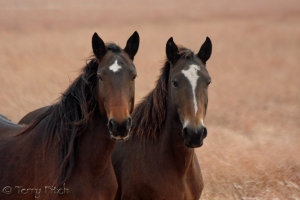
Source: By Danielle Endvick, as published in The Country Today
“We did lose eight horses to slaughter last time…”

photo by Terry Fitch of Wild Horse Freedom Federation
A dressage show is hardly the first place you would expect to find a horse that once roamed wild in the Badlands.
But that’s just where Michigan native Samantha Behn could be found this summer with her horse, Arrow.
Her neck slung low, Behn’s bay roan patiently awaits her turn in the show-ring.
“People notice her, how mellow she is,” Behn said. “A lot of them don’t believe it when I say she was wild.”
Five-year-old Arrow was born in Theodore Roosevelt National Park in westernNorth Dakota, where more than 200 wild horses still roam today. The mare was sold as a weanling in a 2009 auction to help control herd numbers.
Bidders will once again have the chance to take home one of the national treasures at a Sept. 28 auction at Wishek Livestock Sales in Wishek, N.D.
Park volunteer Marylu Weber, who has helped track and identify the wild horses since 1999, said roughly 115 head, mostly 3 years old and younger, are expected to sell.
“No one really knows when the horses first came into the area, but we think they’ve been wild for probably 150 years,” she said.
Bob Fjetland, president of the North Dakota Badlands Horse, said some believe the horses can be traced back to Sitting Bull’s own stock.
“They really are representative of the turn-of-the-century ranch horse,” he said.
“Back in that era, the local ranchers really admired the traditional Indian pony for its speed and stamina, but the farmers needed a horse that could work the fields all day, drive the wagon to town and do all the multifaceted things that were required of a ranch horse,” he said, noting the horses also exhibit influences of the Thoroughbred, Morgan and draft horses of the time.
“It ended up in a horse that’s got great bone, great feet, is well-muscled and, through their development in the wild over time, only the strong and the smart survived,” he said. “It really is a great all-around horse.”
Weber said DNA testing has also indicated Spanish influences.
The horses are not as small as traditional mustangs.
“They’re very well put together,” Weber said, noting heights average above 15 hands.
The herd is known for its array of colors.
“Roans are prominent,” Weber said. “Some of them are really unusual. They’re such striking bold colors — really something to see.”
Wild heritage
From the moment he stumbled upon the wild horses, also known as Nokotas, Fjetland knew he had found something unique.
“I’d had the usual, the Quarter horses, Appaloosas, Arabians, but I always seemed to be looking for something more,” he said. “No doubt about it, this was the horse for me.”
One of his favorite wild horse watching moments took place last summer as a mare and her days-old foal navigated a deep drywash gully in the park.
“The banks were 10 feet tall, fairly narrow, not totally vertical, but fairly steep,” Fjetland recalled. When the mare shimmied up the bank, her foal sure-footedly followed.
“I said to myself ‘That’s what makes these horses different,’ ” he said. “By the time that baby’s a few weeks old, it will have done more physically than adomestic horse does in its lifetime.”
Population control
Held every few years, the roundups are part of ongoing efforts in population control on the 20 bands that roam the park, Weber said.
Though the auctions have been criticized by some who would like all of the horses to remain wild, Weber said they are a necessary step.
“I think often people don’t understand that the park is completely fenced,” she said. “The horses only range in the park, and because there are other large ungulates like bison, elk, deer and pronghorn that have to feed in the park — and a lack of large predators — they have to be managed.”
Fjetland said the park staff recognizes that roundups alone are not the answer to managing the horses.
“The park has been very, very proactive in considering matters of birth control,” he said. “In 2009, in conjunction with the University of Colorado, they implemented the first round of a birth control program.”
The university will initiate a second round this fall.
“One of the things we as a group are really advocating is the idea of doing smaller low-stress roundups,” Fjetland said.
Due to the park’s terrain, the horses traditionally are rounded up with helicopters.
“Ideally we’d like to be able to bait and trap … to pull some of the weanlings out in the fall of the year when they’re most marketable,” Fjetland said.
Weber said smaller roundups held more frequently would allow the park to bring bands in rather than the entire herd.
The right facilities
Weber, who bought two of the park’s horses in the last sale in 2009, stressed that buyers must remember the horses will be fresh off the range.
“If people are considering buying one of these horses we want to make sure they have the right facilities and some experience or at least someone who has experience with horses to help them,” she said.
“These are not like domestic horses,” she said. “If someone has the skill and the facility to do it carefully and gently, they gentle down to be wonderful horses, but it’s important to understand how much you have to go through just to be able to touch them, to pick up their feet, to put a halter on. In some cases it can take months.”
Six-foot-high fences are recommended for anything at least a year old.
A call for help
Related Articles
- Exclusive: Wild Horse and Wild Burro Good News and Bad News from Twin Peaks HMA (ppjg.me)
- Feds Stand by As Unbranded, Federally-protected Wild Horses Are Captured and Sent to Slaughter Auction (rtfitchauthor.com)
- New Interior Chief Let Down the Wild Horses (rtfitchauthor.com)
- BLM Reneges on Wild Horse Roundup Promise (rtfitchauthor.com)
- Rep. Grijalva Chides BLM’s “Broken” Wild Horse Policy(rtfitchauthor.com)
- Advocate R.T. Fitch nominated for wild horse board (horsetalk.co.nz)
